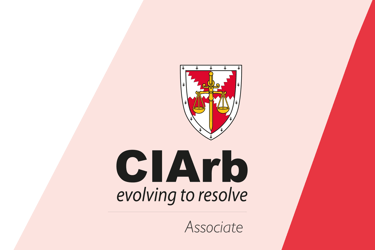

Mediation & Dispute Resolution
We have made quality of our habit. It’s not something that we just strive for – we live by this principle every day.


Issues on projects may result in costly consequences for either party. As the breakdown in the relationship deepens, the more the project could be effected. Common issues that can cause escalations on a project can be: contract disputes, scope of work issue, payment dispute, delays, communication, financial issues, defective work and variations.
Why might you need mediation
Regardless of how you are in this situation, our aim is to work with all parties to get the project up and running as fast and as cost effectively as possible. Whatever the dispute, our pragmatic approach and experience will allow us to help overcome the imaginable to put processes in place that will allow the project to move forward. Square One Consulting can also offer on-going support even after mediation has finished, ensuring that your project runs smoothly as per the contract agreement.
How we can help
Bring your project back to 'Square One'










Construction mediation is a form of alternative dispute resolution (ADR) that involves a neutral third party, the mediator, helping parties in a construction dispute reach a mutually acceptable resolution. Mediation is often used in the construction industry to resolve disagreements or conflicts that may arise during a construction project. Here's an overview of how construction mediation typically works:
Voluntary Process:
Mediation is a voluntary process, and all parties involved must agree to participate. It is a consensual method of resolving disputes, allowing the parties to have control over the outcome.
Selection of Mediator:
The parties can jointly select a mediator or, if they cannot agree, a mediator may be appointed for them. The mediator is a neutral and impartial facilitator who does not make decisions but helps guide the parties toward a resolution.
Confidentiality:
Mediation is a confidential process. Discussions that occur during mediation are generally not admissible as evidence in court. This confidentiality encourages open communication and allows parties to explore potential solutions without fear that their statements will be used against them later.
Informal Setting:
Mediation typically takes place in an informal setting, often at a neutral location chosen by the mediator. This setting promotes a more relaxed and collaborative atmosphere than a formal courtroom.
Opening Statements:
The mediator may start with opening statements from each party, allowing them to present their perspective on the dispute. This can help the mediator understand the key issues and concerns.
Private and Joint Sessions:
The mediator may conduct private sessions with each party (caucuses) to discuss confidential information and facilitate communication. Additionally, joint sessions may be held to bring the parties together to discuss common concerns.
Identifying Issues and Interests:
The mediator helps the parties identify the underlying issues and interests driving the dispute. By understanding each party's perspective, the mediator can assist in finding creative solutions that address the parties' needs.
Generating Options:
The mediator facilitates brainstorming and the generation of potential solutions. This process encourages the parties to think creatively about how their concerns can be addressed.
Negotiation and Agreement:
Once options are on the table, the parties engage in negotiation. The mediator helps them explore trade-offs and find common ground. If an agreement is reached, it is typically documented in writing.
Enforceability:
In many cases, the mediated agreement becomes a legally binding contract. This provides a formal structure for enforcing the terms of the agreement.
Time and Cost Savings:
Mediation is often quicker and less expensive than litigation. It allows the parties to avoid protracted legal battles and maintain a working relationship, which can be especially important in the construction industry.
Construction mediation is a flexible and effective method for resolving disputes, offering parties the opportunity to collaborate on finding solutions that meet their unique needs and interests. The success of mediation often depends on the willingness of the parties to engage in good faith and the skills of the mediator in facilitating the process.